
Ownership of History
Friday 21st of October at 16:00-19:00
Satellite Event with exhibition at AllArtNowLab
Älvkarleövägen 6, (Ropsten t-bana – exit Hjorthagen), Stockholm, Sweden
Contributors: Stefano Cagol, Kapallorek Art Space, Projek Rabak, Kamal Sabran
Organizers: Abir Boukhary and Khaled Ramadan. Part of “Curatorial”.
Supported by Kulturrådet and in collaboration with Botkyrka Konsthall.
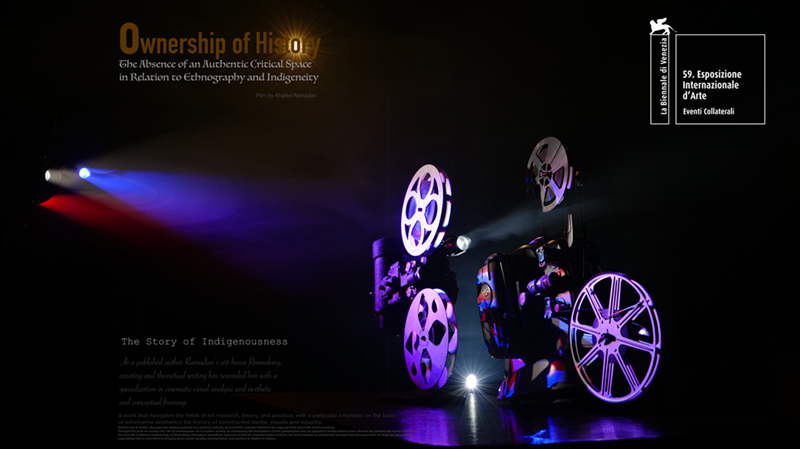
OWNERSHIP OF HISTORY
Several former Western colonial nations still have a very strong interest in the telling of history, doing so while bolstering coloniality in every sector of their societies, portraying colonialism as a grand civilizing achievement, cementing their own colonial history as a “civilizing agent” that carried out an urgent operation to save the world, as explained by the founder of the Third Text journal, artists and theorist Rasheed Araeen.
Former colonial nations continuedly to claim authorship and ownership of historic narratives, proudly celebrating their own documentation of these historic events. However, while they perceive the ownership of history as a matter of national heritage and their storyline is considered accurate and the most factual bright and right, the colonialist narratives remain biased and doubtful in the eyes of all colonized nations with no exception.
Until today, few former colonial nations offer to open up their colonial archives, offer to return the artifacts they looted from other countries, or simply offer an apology to the countries they colonized. Among these many are still colonized in proxy and suffering from underdevelopment, economic problems, starvation, and ethnic conflicts. This is for instance the case in several African countries and in the Middle East. Ironically both are colonial terms of generalization, founded and cemented into the consciences of these regions by colonial powers till this very day.
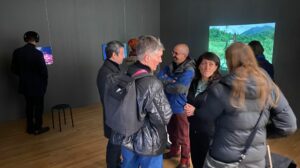
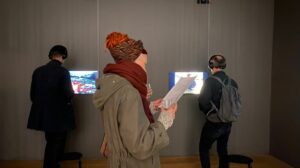
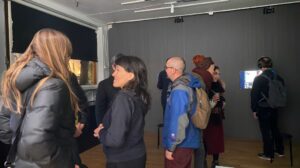
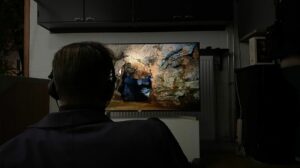
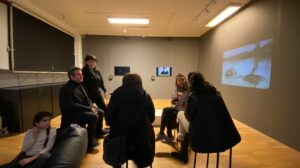
DOCUMENTATION AS CONDEMNATION
If we wonder what really took place during colonial times, there is perhaps a way to open up all colonial archives, including the massive amount of audio-visual material, despite the consequences. It is said that history has no lawyers, but it has witnessed. In this case, the massive volume of audio-visual documentation of historic events that took place across almost all former colonies, (ironically documented by the colonizers themselves) is our living witness. Therefore, they are in demand and occasionally brought up by most of the colonized nations. The latest demand in 2022 was by Algeria demanding that France releases its colonial archive and returns what it has looted from Algeria, including artifacts and human remains.
North African Arab countries have been absent in any wealth return progress or promises. The demand was met by France with refusal, which led to the cancellation of President Emmanuel Macron’s visit to Algeria in 2022.
Back to the audio-visual documentation of historic events, what has been revealed shows the tremendous atrocities, land confiscation, treasure looting, and systematic destruction of the colonized nations’ culture and heritage. Therefore, the documentation acts as self-condemnation of the colonizers. That is why a country like France categorically refuses to open its colonial archive.
Despite the strong and controversial evidence, an attitude of unapologetic denial remains mysteriously intact, and when a formerly colonized nation demands an apology, it is met with economic sanctions, or even punished like in the latest case of Mali. However, we have seen positive signs from the Vatican. Lately, an apology was issued by the Pope to indigenous communities across the world. I shall get back to this later in the text.
In addition to the above practice, mainstream Western media and academia often support a Western narrative of historical events, including teaching a biased narrative of history in classrooms. Within the same context, especially when confronting a larger untrained public, some professional historians claim an absolute monopoly of historic human narratives. This tendency unfortunately helps cement the writer-narrator’s saga of human history seen from one point of view.
The suppression of others’ sagas of historic events makes us question why and in whose interest such practice is taking place. Can the truth lie in the traditional Western historiographical attempt to offer its own fact, learning, and interpretation of historic events simply to cover up the mass atrocities committed by colonial powers against native populations across the globe? If this is the case, we are actually witnessing another form of atrocity – an educational crime based on the continuation of an old colonial practice: You read and learn my truthful story about your history.


